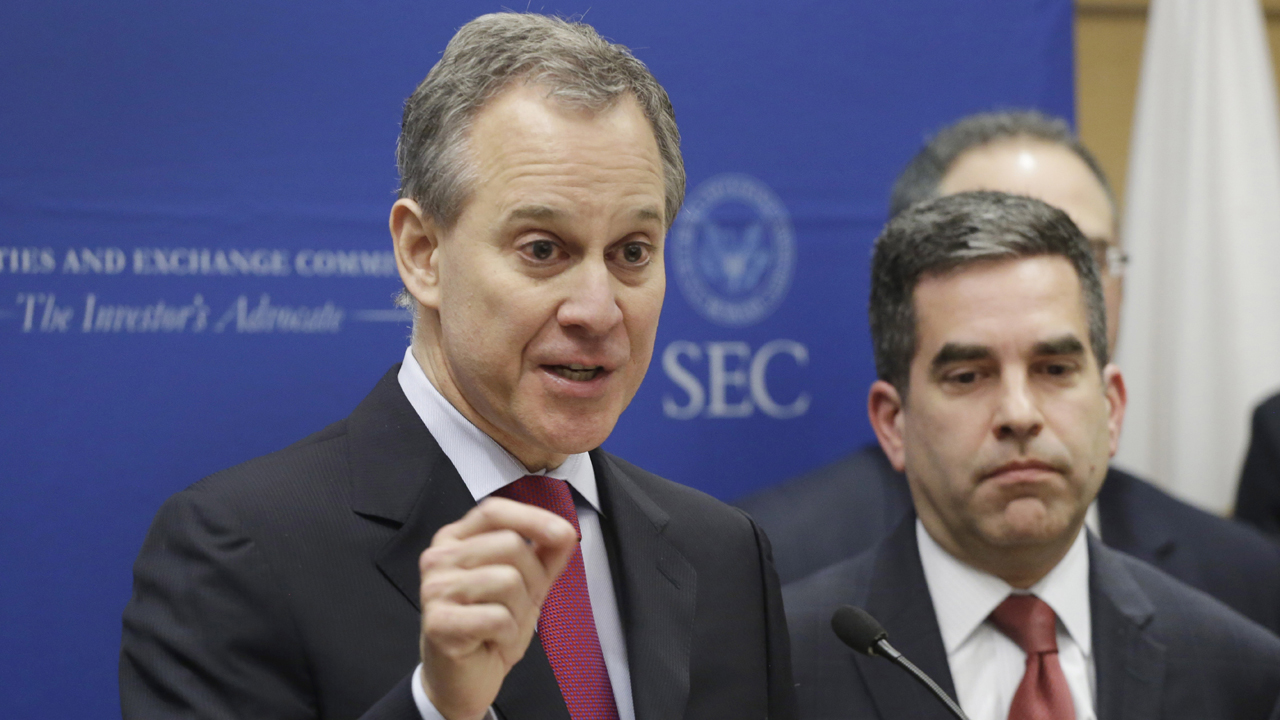NY AG Schneiderman Not Done With HFT Crackdown
The New York Attorney General’s office is largely through with its crackdown of high-frequency trading (HFT) activities at Wall Street trading venues known as “dark pools” but has several other ongoing investigations into the controversial business of the computerized rapid-fire buying and selling of stock, the FOX Business Network has learned.
Earlier in the week, N.Y. AG Eric Schneiderman announced settlement with two major banks, Credit Suisse Group (NYSE:CS) and Barclays PLC (NYSE:BCS), over charges that both firms made money attracting trading order flow to their dark pools by giving improper advantages to high-frequency traders over other investors. The banks paid a total of $154 million in a joint settlement with the office and the Securities and Exchange Commission without admitting nor denying wrongdoing.
But people with direct knowledge of the activities of Schneiderman’s office—which has led the regulatory crackdown in this area—say his deputies are working on additional cases involving illegal practices involved in high-frequency trading. These people also say that the office has largely concluded its dark pool crackdown, though they would not rule out an additional case or two in the coming months.
A spokesman for Schneiderman declined to comment.
“What the office continues to look at is conduct in the high frequency trading space,” said a person with direct knowledge of the activities. “They’re using a lot of their resources in this area, though they’re mostly done with the dark pool part of it.”
Dark pools are stock exchanges operated privately by banks as opposed to public markets like Nasdaq and the New York Stock Exchange. Because high-frequency traders have a speed and information advantage over other traders in a dark pool they can take advantage of the slowness or latency of these other participants and thus have an unfair advantage in buying and selling stocks.
At issue for Schneiderman’s office: Did dark pools like the ones operated by Barclays and possibly Credit Suisse provide the high-frequency traders this unfair advantage in order to attract their order flow of trades to its trading venue? Since the high-frequency orders are often undisclosed, such a move enhances the dark pool’s profitability because it would drive other players to trade through the venue because of its increased liquidity.
But abuses in dark pools, including not properly disclosing the degree to which HFT firms operate in this venue, is just one area Schneiderman’s office is investigating. People with knowledge of the office’s efforts say investigators are looking at activities such as “spoofing,” whereby traders make money by manipulating stock prices through fake trades. The way it works is high-frequency traders would place orders they don’t intend to complete, but they induce other buyers and sellers into the market, driving prices higher and lower.
Because they can trade at fractions of a second, they can earn big bucks selling into or buying at the prices they artificially created.
The SEC is also examining dark pools and potential abuses by high-frequency trading firms following the 2014 publication of the book “Flash Boys” by financial journalist Michael Lewis, who alleged that the nation’s stock markets were being rigged by high-speed trading.
Despite Lewis’ critique, no major high-frequency trading firm has been charged in the government’s various probes. In fact, Schneiderman’s office has so far steered clear of looking to regulate trading shops, but rather focused on operators of dark pools and abusive trading techniques.




















